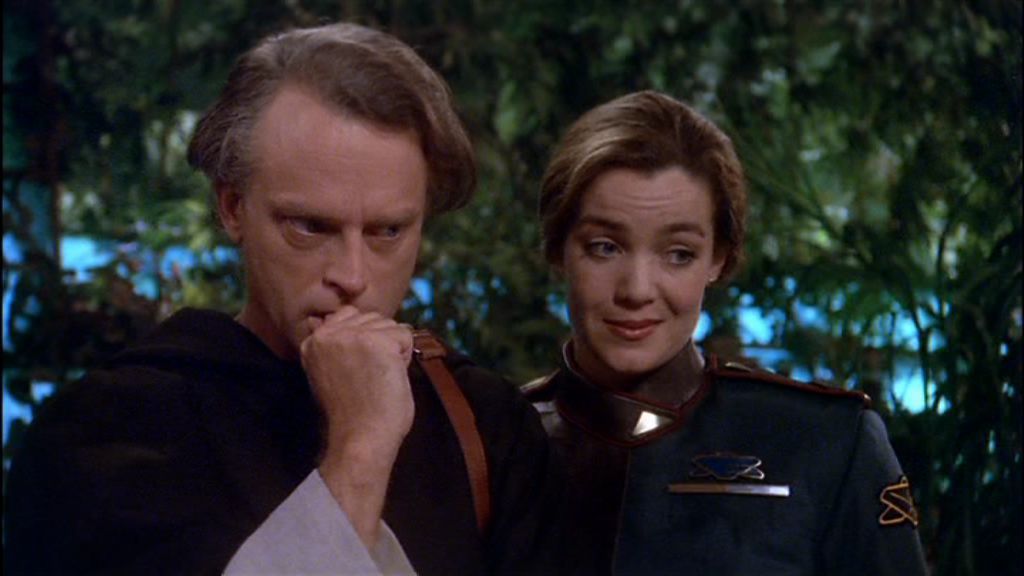Now that’s one bold title! And its quite probably an exaggeration, of course. But it was a byline to aim for. I had the time and the will to make an awesome game, but I also had a shoestring budget to use.
Understanding what resources you have available and designing a game around them is probably the most important skill an indie game developer must have. Game studios usually have a producer to bring game designers out of the dreamlands and back to solid ground. On indie development, you’re usually it.
I love strategy games and I love RPGs. I’m that sort of guy who’d play Masters of Orion II and Medieval: Total War for hours straight. “Just one more turn”. You know how it goes. But making a strategy game like those is way beyond my scope. I’m just one guy working only a few hours a week, intended on making a game in just a couple of months, tops. So I needed to focus, cut here and there and see what I could do that worked on its own.
My idea: could I provide the player with the experience of commanding a space station like Babylon 5 or Deep Space 9 without a plethora of complex game mechanics? What games existed out there with that theme?
My first surprise (or not) was realizing that the few space station management games out there were not about the tv series experience, but about managing a city. It was about building modules, handling different populations, assigning crews to various jobs...
They were not tailor-made decisions. Yes, these games can be fun, especially based on emergent gameplay, when things just happen on an unexpected order and you have to handle them as you can. But that wasn’t what I wanted to do.
So I turned my eyes at something else: RPGs.
You see, Banner Saga has something very interesting to it. If you stop to analyze it as a game structure and mechanics you realize it’s just a simple board combat game connected with random events and awesome (yet simple) artwork. Of course there is a story framework guiding everything, but the raw mechanics are very simple. Now, if you go further and analyze other RPGs, aren’t they similar, though with more mechanics? The vast majority of RPGs are about walking around, killing monsters, collecting treasures, then interacting with some NPCs that may or may not include a hard decision to make. What makes of it an RPG are not stats or classes, nor exploration and combat, but those important story-driven decisions you must make.
Isn’t that what made Babylon 5 and Deep Space 9 fun?
Let’s face it: how many times did we see Captain Sinclair, Sheridan or Sisko micromanaging the station? Was it about dealing with the station’s happiness meter or was it about handling crises and making the hard decisions? And what made those decisions important?
So I took a different look into making this game. You would have the attributes of an RPG character, you’d have the companions and the interactions, and the crisis-management. You’d also have the feeling of been in command of a space station at the lawless frontier of space. And I wouldn’t need a thousand years to make it.
Now, how was I supposed to do that?
Back to the beginning of this post: understanding what resources you have available and designing a game around them is probably the most important skill an indie game developer must have.
I’m a writer, so I should invest in that as the game's selling point. What I decided to do was a story-driven RPG wearing the clothes of a space station management game. What in most strategy games come as complex game mechanics, I’d present as dire situations and decision-making.
The station detects a rich mineral deposit surrounding the nearby star. They also identify what may be the remains of an ancient civilization. What do you do? Do you start a mining operation that will greatly improve your station’s profit or do you send an archaeological team to study the place and maybe find something useful?
Weeks later something happens based on that decision. Maybe you’ll need to deal with pirates raiding your mining operation. Maybe you will find an ancient artifact that draws some unwanted attention. But it’s not just one decision that makes the difference. What star systems you have decided to open trade relations with will also influence that storyline. Have you made a deal with Niter? Then a niterian corporation may try to steal the artifact for their own purpose. Are you trading with the yahidar instead? Pirates will try to take the artifact by force, and the result may not be pleasant at all.
And of course this is not just that. You may command this space station, but you still answer to the League of Worlds. Your decisions may draw the attention of the most powerful aliens in the known galaxy. You don’t want the visit of a League Fleet commanded by a trigger-happy sahjon admiral, do you?
Next week I’ll talk about game mechanics and how all of that fits together.




Comments
Post a Comment